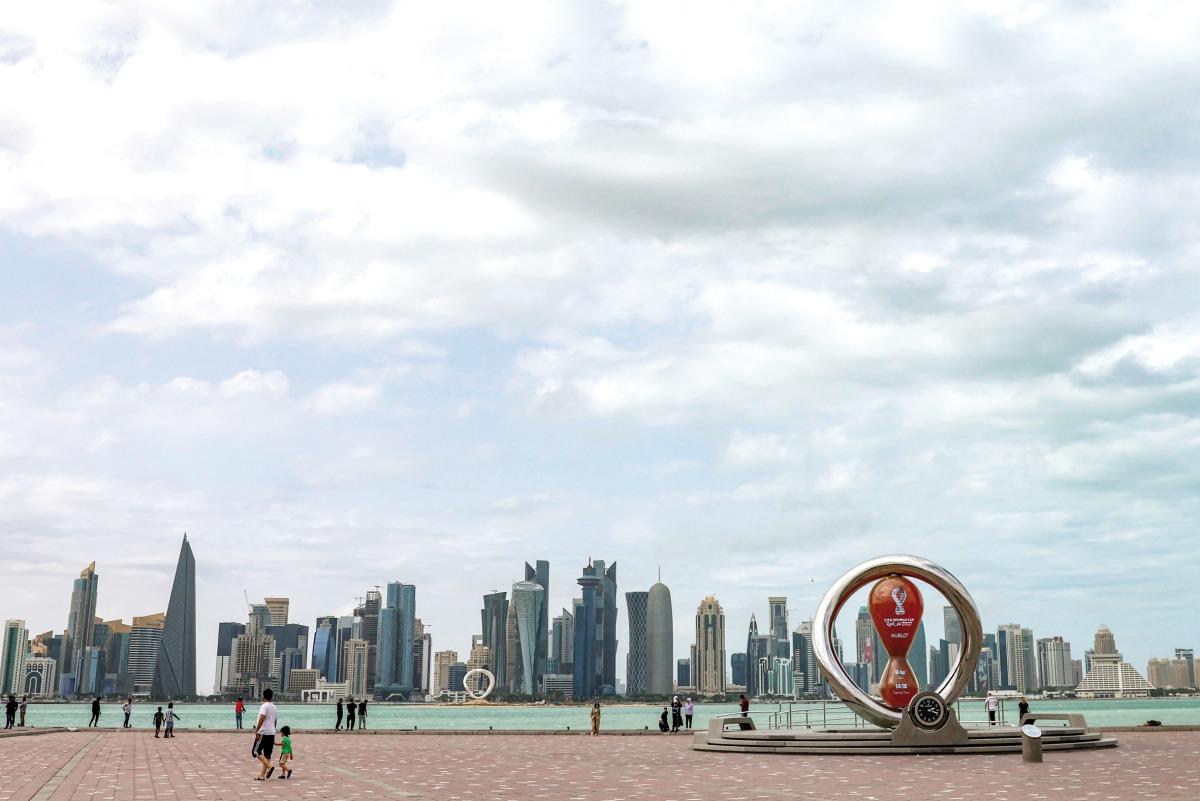
World Cup Accelerated Qatar's Economic Diversification: IMF
Doha: Hosting the FIFA World Cup 2022 has accelerated Qatar's economic diversification into non-hydrocarbon sectors as its massive public infrastructure investment programme since 2011 built out everything from ports and roads to metro and airports. The cost of stadiums represented only about 5 percent of the total infrastructure investment, by some estimates, said International Monetary Fund (IMF) in a report recently.
Qatar continues to enjoy economic gains after hosting the 2022 FIFA World Cup, which boosted its global profile. Visitor arrivals in 2023 were nearly twice pre-pandemic levels, and tourism this year reached new heights, it added.
The IMF analysis shows that the public investment programme helped drive most of Qatar's economic diversification over the past decade, contributing on average 5–6 percentage points annually to non-hydrocarbon real GDP growth.
“Going forward, the newly created infrastructure can be leveraged to generate new jobs, businesses, and opportunities in sectors beyond the oil and gas industries for further economic growth,” it said.
The IMF said that structural reforms have also accelerated. Qatar has enhanced labour protection for foreign workers, who account for about 95 percent of the labour force.
“It was the first Gulf Cooperation Council (GCC) country to abolish Kafala, a sponsorship system for foreign workers that limits their mobility. The government also implemented initiatives to improve business efficiency and attract foreign direct investment. Furthermore, Qatar has advanced digitalisation efforts significantly, ranking 16th among 198 countries in the World Bank's GovTech Maturity Index,” the report said.
The IMF said Qatar's Third National Development Strategy (2024-30) launched in January 2024 sets the strategic priorities in line with its advice.
“Qatar's key challenge remains transitioning from public sector-led growth to a more diversified, private sector-driven model, as envisioned by Qatar's National Vision 2030. Achieving this transformation requires bold reforms to boost productivity, foster a more conducive business environment, and leverage progress in digitalisation and climate actions, according to the IMF's latest annual economic review,” the report added.
IMF analysis suggests that reforms to attract more skilled foreign workers, ease access to financing for small and medium enterprises, and encourage competition and trade could generate the most significant growth gains. Simulations suggest that a comprehensive package of labour market and business environment reforms could boost annual non-hydrocarbon growth by close to 3 percentage points over the medium term.
“To maximise gains, the authorities should ensure that complementary reforms are properly sequenced and consistent with the country's capacity for implementation. Continuing progress with digitalisation and climate actions can generate new sources of growth and enhance sustainability,” the IMF said.
Qatar's economy is expected to double in size by 2031, aided by the country's ability to restore government revenues to pre-2014 oil price shock levels, according to Standard Chartered, a leading international banking group.
The primary drivers behind this recovery include higher hydrocarbon prices and a surge in global demand for energy, particularly within the LNG or liquefied natural gas market.
Qatar's economic diversification efforts are anchored by the Third National Development Strategy (2023-30), which plays a crucial role in the recovery of government revenues, reducing economic dependence on hydrocarbons and enhancing resilience to price fluctuations, it said.
Qatar's non-oil economy comprises two-thirds of Qatar's gross domestic product (GDP) and has seen significant contributions from sectors such as real estate and construction, financial services, trade, manufacturing, logistics, and tourism. Such sectors have not only created new revenue streams but also provided employment opportunities, supported by substantial infrastructure investments.
The report noted the role of international financial institutions and foreign investment, both of which have supported Qatar's diversification strategy, particularly in non-oil sectors such as tourism, manufacturing, finance, and logistics.
Qatar has implemented a series of reforms to improve the investment climate, including easing restrictions on foreign ownership, establishing free zones, and enhancing the legal and regulatory framework for businesses - all of which have successfully attracted significant infrastructure and energy sector investments from around the world.

Legal Disclaimer:
MENAFN provides the
information “as is” without warranty of any kind. We do not accept
any responsibility or liability for the accuracy, content, images,
videos, licenses, completeness, legality, or reliability of the information
contained in this article. If you have any complaints or copyright
issues related to this article, kindly contact the provider above.


















Comments
No comment